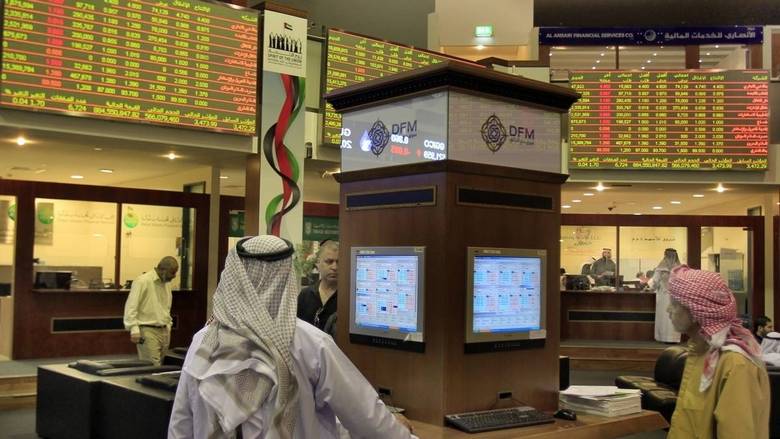Major Gulf stock markets were mixed on Monday, coming off gains in 2022 for most, as investors braced for the new year with worries about a potential recession, crude demand and the U.S. Fed hiking rates further.
Gulf Cooperation Council countries are in the firing line of Fed policy moves as five of them have their currencies pegged solely to the dollar and broadly match U.S. monetary steps, while Kuwait's dinar is linked to a basket of currencies believed to be dominated by the greenback.
Meanwhile, the IMF warned on Sunday that for much of the global economy, 2023 is going to be a tough year as the main engines of global growth - the United States, Europe and China - all experience weakening activity.
The new year is going to be "tougher than the year we leave behind," IMF Managing Director Kristalina Georgieva said on the CBS Sunday morning news program "Face the Nation."
A Reuters poll showed on Friday that of 30 economists and analysts forecast Brent crude would average $89.37 a barrel in 2023, about 4.6% lower than the $93.65 consensus in a November survey. The global benchmark has averaged $99 per barrel in 2022. read more
In Dubai, the main share index (.DFMGI) fell 0.2% pressured by a 1.4% decline in district cooling provider Emirates Central Cooling Systems Corporation (Empower) (EMPOWER.DU) and a 0.9% drop in Dubai Electricity & Water Authority
Abu Dhabi's index (.FTFADGI) added 0.3%, bolstered by a 1.6% increase in AD Ports Group (ADPORTS.AD) and a 2.4% hike in Multiply Group (MULTIPLY.AD).
The benchmark was 2022's best performer among the other peers in Gulf Cooperation Council countries finishing the year with a more than 20% gain, after hitting an all-time high in early November in 2022.
In Qatar, the benchmark (.QSI) was also up 0.3%, supported by its financial stocks but Saudi Arabia's benchmark index (.TASI) retreated 0.2% with Saudi National Bank (1180.SE) falling 0.8% and oil behemoth and index heavyweight Saudi Aramco (2222.SE) easing 0.5%.










